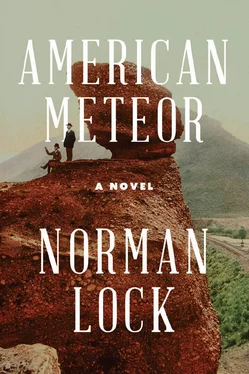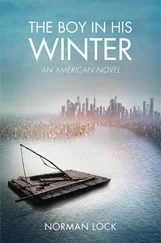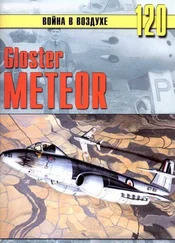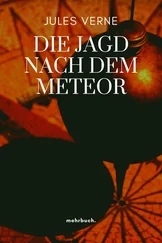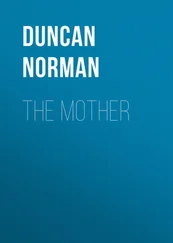I’ve heard the talk concerning Whitman’s depravity, but I never believed it. When he laid his hand gently on my brow, I felt the tenderness of a benevolent man, nothing else. If I had been well and he’d thrown his arm over my shoulder and embraced me — even if he’d kissed me with his bearded lips and called me his sweet comrade — I would not have been ashamed. In my childhood, I had grown beyond shame, and nothing could embarrass me. I’d walked the squalid streets and alleys of the Five Points and the Bowery; passed — an unnoticed boy — among filthy dens where whores, thieves, and cutthroats consorted. I’d seen most every variety of human and bestial conjugation and suffered the hardships of our kind’s most ingenious war. There will be others, even more ingenious and brutal. I mean to say that I was not naïve, nor was I the least afraid of this man whose love for men and women seemed perfect Christian zeal.
I knew no other faith; knew of Christ and the mother of God, of His saints and angels only what my Irish mother had taught me before typhoid took her to Abraham’s bosom or only to the sure and certain corruption of the body, packed with little ceremony in the impoverished earth of Ward’s Island, on the other side of Little Hell Gate. I don’t believe in hell, except as it was spread daily before my eyes from Canal Street to Pearl, squeezed into Manhattan’s rancid tit between the East River and the Hudson. Hell is for the living. And heaven? A boy, I pictured it as a field of fireflies on a summer’s night — each tiny yellow light a blessed soul. If my childish fancy is true, then the end of days for hosanna-hymning bugs lies in the bloated belly of a bat.
“Poor boy,” Whitman murmured, as if he had looked into my mind with his all-seeing eyes and found there the common tragedy of the poor.
Grateful for his sympathy, which I knew to be genuine, I nodded my thanks. Like love, it was a delicacy rarely served in tenements where creatures (call them people for old time’s sake) swarmed like ants on a stale cake, in spaces (I will not call them rooms) with a dearth of light and air but a plenitude of misery and disease. I had a brother, Sean. Too young for war, he stayed behind in Bushwick with our useless souse of a father. After I left, he went bad (a word used also for spoiled meat beloved by maggots), preferring a roughneck life to the oyster trade. Small and wiry, he excelled as a pickpocket until a porter found his hand inside his dungarees and broke it. Versatile, he took to waylaying swanks on Wall Street and looting Fifth Avenue kitchens of silverware and plate. Sean moved into the “Bloody Sixth” near the seaport so that he could rob the Irish just off the boat “to give them a taste of equality.” When my uncle Jack broke his neck, falling from a streetcar, I had no further news of Sean or of my father. Uncle Jack had beautiful penmanship — strange in a man with fists like beef hearts — and he liked to write letters. Once he’d gone, I would get no others, though envelopes would pass through my hands — links in a chain holding the continent together — while I sorted mail, in motion between Santa Fe and Independence, Missouri.
Ten years ago — it must have been — I was leafing through a book of pictures taken by Jacob Riis, when my hand was stayed by a photograph of “Bandit’s Roost” in New York City. In the foreground, my brother stands with swaggering nonchalance, a hand in the pocket of his dark suit. From the shadow of a derby hat, his eyes confront the camera with cold and insolent certainty. His mouth is cruel. Behind him, another man appears to be leaning on the barrel of a rifle, unless it’s only a length of steel with which to batter down doors or break heads. In the wet, somber recesses of the alley, between two Mulberry Street tenement houses, overhung with ragged, dingy wash, other roughneck men stare down the interloper, while, from out a window, a sharp-faced woman glares. I wondered then if Sean had died since his picture’d been taken and — for a moment — I hoped he had.
“Were they able to save your eye?” Whitman asked, his voice so drenched in melancholy that my unbandaged orb began to weep in pity for its lost twin.
“No, sir,” I said, touching the ravaged place.
He shook his head ruefully and gave me a look that would have softened Herod’s flinty heart. When I’d wished my brother dead, I was indulging in the self-righteousness of someone who had already grown away from temptation after capacity and appetite had dulled. I’d never been vicious like Sean, but I had sinned in the usual ways of men and women who did not settle and who lived on the frontiers of existence, under conditions most would consider savage. The ill will I felt toward my brother when I saw him at Bandit’s Roost (a fabulous place despite its meanness) might have been envy for a young man still in the prime of life. That he, too, must have aged since Riis had captured him with his box camera didn’t occur to me. That day in the Lincoln public library when I saw Sean’s picture, I felt I’d been squeezed dry: I’d lost my sap and vinegar. But in 1865, when I lay on my hospital cot, manhood waited to be claimed, like a bag at the freight depot in a city spread out before me like a mirage.
“How old are you, son?” Whitman asked.
“Going on seventeen.”
“So young,” he said, stroking the back of my hand with his poem-stained fingers. “How did you come to lose your eye?”
I told him the story of my heroism, with embellishments — told it so well, I was nearly persuaded of my exceptional character.
“You sacrificed what little you had to call your own for democracy, freedom, and human dignity. You gave an eye, half of man’s greatest blessing, when rich men up north paid a small price to keep themselves and their sons from harm.”
With those few words, accompanied by a glance that seemed to measure the dimensions of my meager existence, Whitman made me see myself as a sacrifice on the altar of wealth, but a hero notwithstanding. He didn’t believe in tragedy, however; and elbowing me playfully as you would a friend sitting on a bar stool next to yours, he gave me a draught of democratic optimism: He smiled at me with a frankness that, in any race but the American, would have been mistaken for idiocy. The effect was disagreeable, since I’d been enjoying the lugubrious feeling his pity incited in me the way a successful man looks back pleasantly on the privations of his childhood. Their memory is like a drop of Angostura bitters to spice up his gin.
I had yet to develop a conscience — boys rarely have one— and four years of war had blighted what might have taken root in an untroubled season. Hatred and spleen soured me. While I grew, in time, into an ordinary man of equal parts goodness and selfishness, I have a cynic’s view of God and His principal creation. My later “visions” confirmed my misanthropy: I’ve learned that so many of our deeds are really misdeeds committed without thought for the future. I’ve come to view the world with suspicion and alarm, as even Huck Finn would have, had he seen Tom Sawyer grow into an old man and Jim lynched, his body dumped into the Mississippi.
“You’ll be yourself in no time!” Whitman declared with enthusiasm. “The war’s nearly finished. The Union has carried the day, and the world’s a young man’s oyster!” I knew all there was to know about oysters: how they broke your back to harvest, pained your feet to carry from street to street, and lacerated your hands to open. “I’d like to see your Jericho, if you still have it,” he said.
I lifted the sheet and showed him my bugle.
He took it up and admired the dents.
“What’s your name, friend?”
“Stephen Moran.”
“I won’t forget you,” he said.
Читать дальше
